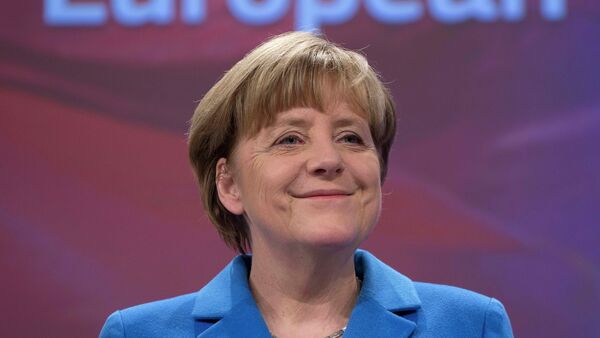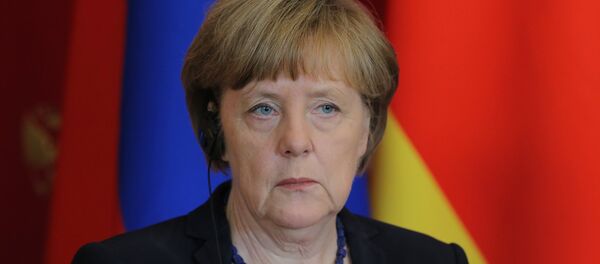October 2017 marks the date when Reem, who speaks fluent German, and her family will have to leave the country, according to the Bild newspaper. The Sahwil family's successful social integration has been cited by sources from immigration authorities in the northern city of Rostock as the reason German officials extended their permit of stay.
The girl appeared bright-eyed and hopeful at a televised debate in July. She spoke German clearly, explaining that her family came to Rostock four years ago from a refugee camp in Lebanon.
"I have goals like anyone else. I want to study like them… it's very unpleasant to see how others can enjoy life and I can't myself," she told Merkel.
The German chancellor had nothing to offer in response but a harsh truth. "Politics is hard sometimes," Merkel said.
"Oh my God," Merkel said, in response to Reem immediately bursting into tears in front of the German leader, who continued speaking, adding that, "But you know in Palestinian refugee camps in Lebanon there are thousands and thousands [of people] and if we say you can all come and you can all come from Africa and you can all come. We can't manage that." Merkel faced outrage after the forum video was posted online.
The refugee influx shows no immediate sign of waning in Germany and it remains unclear whether Merkel felt remorse in contributing to the teenager's grief by making it possible for the girl's family to stay longer in Germany.
Merkel is at the center of the European refugee crisis after declaring her country open to refugees, contributing to the largest mass movement of people across the continent since the Second World War. Although large numbers of migrants steadily crossed into Europe for many months preceding her August declaration, the flow markedly increased afterward.
The media quoted federal police saying about 950,000 refugees had been registered in Germany this year. According to forecasts, the total number of refugees in 2015 had originally been expected to be about 800,000 people



